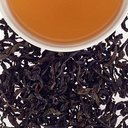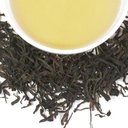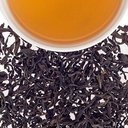Old Tree Shui Hsian
This tea has been retired/discontinued.
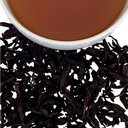 |
|
Commercial Description
The big leaves of Old Tree Shui Hsian are slowly rolled and traditionally finished over charcoal, making for a dark fruit flavor with smoky notes. In China, these kinds of oolong teas are called old man because theyre reminiscent of the good old days. We saw Mike sneaking a cup of this the other day!
Ratings & Reviews
Page 1 of 1 page with 1 review
 71 Aroma: 6/10 Flavor: 3/5 Value: 2/5
71 Aroma: 6/10 Flavor: 3/5 Value: 2/5Alex Zorach (1453 reviews) on May. 28th, 2017
The dry leaf has an interesting shape, loosely curly, less long and wiry than most Wuyi oolong. It's intensely aromatic, smelling like roast and fruit; the fruitiness is quite astounding, it's maybe a little like dried peaches or apricots.
The brewed cup is very roasty, with notes of wood and hints of coffee. It's fairly clear. Aromatically, this tea was subtle, and not as interesting as the dry leaf suggested. The fruity notes mostly vanish and it's mostly roasty. I find this tea is easily overpowered by even mild foods and it's hard to taste it unless you drink it on its own. I find when I drink it on its own it is moderate-bodied, but if I eat anything with it it tastes thin and watery.
The second cup tasted aged, it was soft and mellow, and had some sort of damp and earthy aromatic notes absent from the first cup. It was pleasant, but not the sort of thing I had been expected.
I have been pretty consistently disappointed with the high-end oolongs I've tried from Harney. They all seem to fit a particular aesthetic of flavor, aroma, and mouthfeel. This is a very pricey tea and it just didn't wow me. Perhaps they cater to different tastes? I think I tend to prefer oolongs with more floral notes and a lighter roast. When it comes to the heavier roast, I don't tend to appreciate the difference between the higher-priced ones and the more run-of-the-mill ones.
Page 1 of 1 page with 1 review
More Oolong Tea from China from Harney and Sons
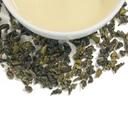
Ti Quan Yin Spring Floral
| Style: | Tie Guan Yin |
| Region: | Anxi, Fujian, China |
| Caffeine: | Caffeinated |
| Leaf: | Loose |
1 Rating


